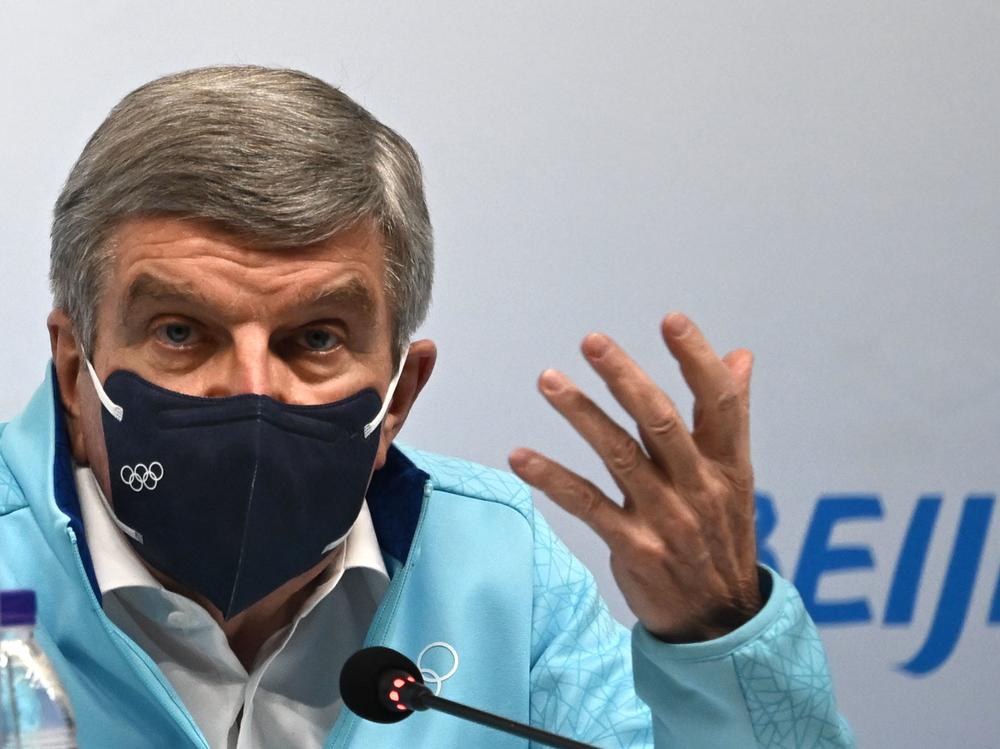Section Branding
Header Content
The Olympic chief will meet with Chinese tennis star Peng Shuai after safety concerns
Primary Content
BEIJING --International Olympic Committee President Thomas Bach said he plans to meet Peng Shuai — the Chinese tennis star who accused a former top Community Party official of sexual assault — face-to-face this month.
Bach said the IOC knows "she is living here in Beijing, that she is reporting that she can move freely, that she is spending time with her family and friends."
He went on to say the next step is to meet her in person "to convince us in person of her well-being and of her state of mind."
Bach was speaking to media during a wide-ranging press conference ahead of the official opening of the Beijing Olympic Winter Games on Feb. 4.
Peng disappeared for weeks last year after walking back her accusation against a Communist Party official — raising fears of her personal safety in China. Her Nov. 2 social media post reporting the assault initially grabbed global attention. She said former Vice Premier Zhang Gaoli forced her into sexual relations.
Bach said though he and other IOC officials have spoken to the top women's tennis player several times via video conference, they want to see her in person to ensure her safety. Peng is a former No. 1-ranked player in women's doubles who won titles at Wimbledon in 2013 and the French Open in 2014.
To achieve this in-person meeting, Bach said Peng will enter the closed-loop of the Olympics in the city, which requires negative coronavirus tests. It's unclear what, if anything, the IOC could do if they find Peng is unable to meet in person or if she reports fearing for her safety.
Outside of the situation surrounding Peng, Bach avoided taking any position on controversies related to hosting the Winter Games in China — a country where human rights abuses have been reported — as well as other political issues.
"If we are getting in the middle of tensions, disputes and confrontations of the political powers than we are putting the games at risk," Bach said.
The IOC's position is not new.
In the lead up to the Games, the IOC avoided criticizing the Chinese hosts and the country's human rights record and said it would remain politically neutral.
The U.S. government, Great Britain, and others have labeled the treatment of China's Uyghur minority as cultural genocide. There are continued reports of violations against Tibetans and Hong Kong pro-democracy demonstrators.
Because of this the U.S. and other countries are undergoing a diplomatic boycott of the Winter Games. Athletes from the U.S. and other boycotting nations are still competing, however.
None of this has appeared to phase Bach or the IOC.
Neither will the continued coronavirus pandemic that — for the second time in two years has added major obstacles for athletes, media, and other personnel in Beijing for the Winter Games.
The Winter Games will continue through Feb. 20.
Copyright 2022 NPR. To see more, visit https://www.npr.org.

